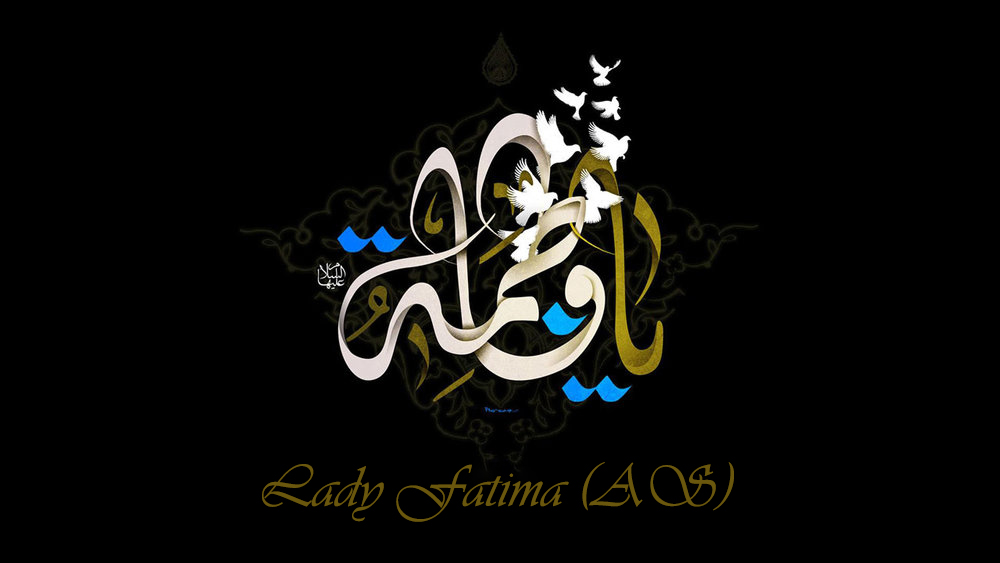

The Status of Gratitude in Islam
In all books of success and in all seminars on the same topic, gratitude and being grateful is introduced as one of the most important keys to success. For example, Brian Tracy says “Develop an attitude of gratitude, and give thanks for everything that happens to you, knowing that every step forward is a step toward achieving something bigger and better than your current situation.” or as Oprah Winfrey puts it: “Be thankful for what you have; you’ll end up having more. If you concentrate on what you don’t have, you will never, ever have enough.” [1]
In this text we try to see if these types of sayings and ideas about gratitude and its impact on one’s life are accepted in Islam.
Definition of ingratitude and gratitude
There are a few verses in the Quran that talk about the importance of gratitude and the consequences of showing both gratitude and ingratitude. To understand the meaning of gratitude and thanking God and His creations, it is important to have a deeper understanding of the Arabic root of the words gratitude (Shukr) and ingratitude (Kufr).
Allah Says in the Quran “… and thank Me, and do not be ungrateful to Me.” (2: 125) do not be ungrateful to me in Arabic is “wa la takfurun” that again comes from the root word “kufr”. The meaning of the word “kufr” is to cover or hide something. [2]
It is interesting that in another verse of the Quran the word farmer is also related to the root word “Kufr”; “…like rain, whose growth impresses the farmer…” (52: 20) and the farmer in the Quran is mentioned as “Kuffar”. The Quran commentators believe that the word “Kuffar” is used for farmers, since the farmer hides the seeds under the soil. [3]
Therefore, ingratitude or ungratefulness in the Quran is used about people who see, feel and use the blessings of Allah (SWT) but they ignore those blessings in different ways such as complaining about what they have, keep asking for things they are not blessed with by the wisdom of God, or more importantly not using the blessings that Allah has given them properly.
On the other hand, the Arabic word “shukr” which is used for gratefulness and showing gratitude means, “to reveal” something. Therefore, the concept of gratefulness and gratitude is to see, feel and use the blessings of Allah, while at the same time trying to use these blessings in the right way.
There are different ways of showing gratitude for different blessings of God. For example, showing gratitude for the health is not possible while laying down in front of TV for hours and saying, “thank God for my health”. Instead, showing gratitude for one’s health is possible when, for example, one takes care of his/her health and uses his/her strength in helping the religion of Allah and helping other servants of His. There are thousands of ways in showing gratitude for our health, wealth, knowledge, good family and friends, etc. the key point is showing gratitude is to see the blessings and use them in the best possible ways.
A great definition for gratitude is explained by Imam Al-Sadiq (AS): “The least kind of gratitude is when a person knows the blessing is (directly) from God and does not know any reason for it except Him and when he/she is happy with what God has given him/her and does not commit sins through His blessings. And, he/she does not use the blessings of God as a means for opposing his commands.” [4]
The consequences of showing Gratitude and ingratitude to Allah
What happens to those who are grateful and those who are not? Does it make any difference? As human beings, we expect others to be grateful to us if we do them a favor, and it is considered rude not to thank other people’s favors. However, thanking Allah does not have any benefits for Him, or being ungrateful to Him would not harm Him in any ways. So the reason why Allah (SWT) emphasizes on thanking Him can again be understood from the Arabic words used for gratefulness and ungratefulness. If we are grateful it means that we show “Shukr” that means we reveal the blessings of Allah. Noticing these blessings is the first step to appreciate what we have and to start using them in order to achieve success in different dimensions. However, if we are not grateful it means that we are committing “Kufr,” which means we are hiding or covering the blessings of Allah, the result of which is wasting His blessings and therefore, wasting our lives.
Allah (SWT) says in the Quran: “If you are grateful, I will surely enhance you [in blessing], but if you are ungrateful, My punishment is indeed severe.” (14: 7)
It is clear as day that if one understands the value of his/her blessings, then he/she can improve the life quality of him/herself and others using those blessings. And if one wastes the blessings, it is rational to take those advantages from him/her and give the facilities to someone who can best use them in improving his/her and others’ lives.
But, unfortunately Allah mentions in the Quran that “few of My servants are grateful.” (34:13) Therefore, it would be great if we can try our best to discover and recognize even the smallest blessings that Allah (SWT) has provided us. We have no idea how using the smallest blessings can bring huge changes and improvements in our life and our soul.

Showing Gratitude to other human beings
Thanking Allah (SWT) for His blessings is very important. However, Allah (SWT) gives specific attention to being grateful toward other human beings. Thanking those who have favored us the most is so important in the eyes of Allah that He obliges us to be grateful to them “We have enjoined man concerning his parents: His mother carried him through weakness upon weakness, and his weaning takes two years. Give thanks to Me and to your parents. To Me is the return.” (31:14)
In mentioning the importance of this verse Imam al-Ridha (AS) says: “Allah Almighty has put gratitude and thanksgiving for Himself along with gratitude and thanks to the parents, whoever has not done the gratitude of the parents has not done the gratitude of Allah.” [5]
Apart from thanking Parents, thanking other people in the society is very important in Islam. Prophet Muhammad (PBUH&HP) says: “He who does not give thanks to the people (for their favors) does not give thanks to God.” [6]
May we all start seeing and discovering the blessings that Allah (SWT) has given us and start using them to the most, so we can make a better life and afterlife for ourselves and others.
References:
- Gratitude
- Qara’ati, M. Tafseer-e Noor, vol. 9. p. 477
- ibid
- Gilani, A commentary on Al-Mesbah Al-Shari’ah, p. 61
- Oyoun Akhbar al-Riza, vol. 1. p. 258
- Man La Yahzuruhu al-faqih, vol. 2, p, 343
Share This Article

14 Prophet Muhammad (PBUH&HP) Quotes about Lady Fatima (AS)
1. Loving Lady Fatima (AS)
Whoever loves my daughter, Fatima (AS), will be with me in heaven, and whoever holds grudges against her will reside in hell.
Bihar al-Anvar, vol.27, p.116.
2. The Best in Worshiping Allah
Fatima (AS) is the best companion in the path toward serving and worshiping Allah.
Bihar al-Anvar, vol.43, p.117.
3. The Dearest
Fatima (AS) is the dearest of people to me.
Al-Shaykh al-Saduq, Al-Amali, p.259.
4. Lady Fatima (AS), the Joy of Her Father's Heart
Fatima is of my flesh, who is the light of my eyes and the warmth of my heart.
Al-Shaykh al-Saduq, Al-Amali, p.486.
5. Injustice to Lady Fatima (AS)
Woe to whoever does wrong to my daughter, Fatima (AS), after my death.
Bihar al-Anvar, vol.73, p.354.
6. Paying a Visit to Lady Fatima (AS)
Visiting Fatima (AS) equals to visiting me.
Bihar al-Anvar, vol.43, p.58.
7. Part of Her Father, Prophet Muhammad (PBUH&HP)
O’ Fatima (AS)! You are part of me, and I part of you.
Bihar al-Anvar, vol.43, p.32.
8. Prophet Muhammad (PBUH&HP)'s Deep Love for Her
O’ Fatima (AS)! I’m ready to give my life for you!
Bihar al-Anvar, vol.22, p.490.
9. A Heavenly Angel
Fatima (AS) is an angel who smells like heaven.
Bihar al-Anvar, vol.87, p.112.
10. An Avid Worshipper
Verily, Allah has poured faith and belief into the veins of Fatima (AS); thus, she is consistent in worshiping Allah.
Bihar al-Anvar, vol.24, p.74.
11. Lady Fatima (AS)'s Marriage
I did not give permission for Fatima (AS)’s marriage until I received Allah’s command as to her marriage.
Al-Shaykh al-Saduq, Uyoun Akhbar Al-Ridha, vol.2, p.59.
12. Lady Fatima (AS)'s Status
My daughter’s light is of Allah, and her status is higher than heaven and earth.
Bihar al-Anvar, vol.15, p.10.
13. The Four Honored Women
Heaven looks forward to four women: Mary, the daughter of Joachim, Asyia, pharaoh’s wife, Khadija, Khuwailad’s daughter, and Fatima (AS), Muhammad (PBUH&HP)’s daughter.
Bihar al-Anvar, vol.43, p.53.
14. Asking Allah's Pardon for Others
O’ Fatima! I give you the glad tiding of holding a high status in Allah’s regard, which provides you with the power to ask pardon for other people.
Bihar al-Anvar, vol.76, p.359.
Read More

Is It Permitted to Hang around in Social Networks in Islam?
It may not be a great deal for Muslims even to check if hanging around in social networks in Islam is Lawful (Halal) or forbidden (Haram) for them. The question may sound very dogmatic when you hear it at first, and you may reply: “What are you saying? We are living in the 21st century. We live in a world of technology. All our communications and a high percentage of our work depend on social networks.”
Okay! Stop answering me before you let me finish my words. I know that we are living in a world of technology and as you see, I am communicating with you via the internet, using social networks. But what I’m talking about is not about the advantages of social networks. We are all aware of how useful cyberspace is in our daily life. But here I want to invite you to think about your habits and behaviors in the cyberspace.
In this article I would like to go through the pathology of our use of social networks and to see if we are going astray at some point, then we can bold it out, so we can solve it.
Why Do We Usually Use Social Networks?
Apart from phone calls and necessary communications that have become easier via social networks, some people run their businesses using these networks. People can sit at home and instead of traveling far distances for work meetings, can stay home and manage their works, or some can even study and graduate via distance learning organizations.
There are loads and loads of advantages that we can keep counting for social networks, and I am not going to ignore all of them. But I want to make a few points that we may be neglecting in using social networks.
Social Networks in Islam: Facebook, Instagram, Twitter, etc.
Let me remind you that Islam is a way of life and Muslims and those who convert to Islam believe that it is the best way of life for one who wants to achieve success in this world and the hereafter.
Does Islam make any limitations for Muslims’ usage of social networks?
Believe it or not, YES. Just like any other aspect of life for which Islam tells us how to behave to achieve absolute success, it has recommendations for Muslims’ use of Facebook, Twitter, Google, Instagram, etc. it may not be directly mentioned in the Quran or narrations, but since social networks are types of virtual societies, the Islamic lifestyle and its rulings may apply to our behaviors in social networks.
Being in any gatherings or societies has its own conditions and requires its special behavior. It is important that we can analyze different situations and find out how we should behave according to our Islamic lifestyle. Social networks are also like a society that requires specific etiquette, and we, as Muslims, should discover these etiquettes. There are a few points that are very important to consider from an Islamic viewpoint, while talking about the etiquette of Muslims, hanging around in social networks in Islam:
1. Men Vs. Women Communications in Social Networks in Islam
Islam has specific rulings about the relationship between men and women in society. These rulings are presented to dignify and respect the character of both men and women. These may contain the following:
- Etiquette of speech and look.
- Not joking and praising the opposite sex for personal acts that are not common to be praised in real society.
- Sending heart or kind stickers that are not common to use in real gatherings.
- Posting photos of either men or women in different places. Muslim men and women do not keep the images of those who are of unmarriageable kin (non-mahram).
Usually, practicing Muslims try to keep these limits in social networks, just like controlling their manners in real society.
2. Showing off
Another thing that is known to be abhorrent according to Islam is showing off to others. Islam says that Muslims are like sisters and brothers [1]. And therefore they have to make sure that if one sister or brother doesn’t have the ability to have something or to go somewhere for any reason (financial, health-wise, etc.), you should not make them feel sorry for what they don’t have or cannot have at the moment.
Therefore, from an Islamic viewpoint sharing your moments of having fun with your friends, or eating at a fancy restaurant, or gaining a great opportunity at work or school, is not recommended.
Considering the above, you can conclude which of your posts on Facebook, Twitter, Google, Instagram, etc. are not liked by God.
3. Wasting Time
Allah recommends Muslims that when they finish a task, they should start another task [2]. It means that Muslims should not waste any time, and we all have the experience that hanging around on social networks consumes a lot of our time without we even realize it.
Therefore it might worth that we specify a specific amount of time to our use of social networks per day, and don’t allow the cyberspace to carry us with it wherever it wishes.
4. Facebook, Instagram, Twitter, etc. Make it Easy to Commit some Forbidden (Haram) Acts
Too much of communication and too much of speech always makes the ground fertile for dangerous words such as wrong judgment of others, the humiliation of other groups or sects or races, insulting people (especially famous people) for no right reason, accusing people of what they haven’t done, etc. These are all forbidden (Haram) according to Islam [3]. But Muslims may sometimes forget to be cautious about these issues in social networks in Islam.
Therefore, I strongly recommend that we specify some time and revise our manner in social networks in Islam. Then, we might realize that much of our use of social networks are useless and is preventing us from attaining our success in this world and the hereafter. Or on the other hand, we may again realize that our use of social networks has no contradictions with Islamic law, and we can keep up the good job!
Let’s be honest guys and not justify the importance of our presence in social networks. If we are wasting time, we need to make a firm decision. And if we don’t live based on an Islamic lifestyle, we shouldn’t expect to be the most successful.
Good Luck
References:
- The Quran: Chapter 49, Verse 10
- The Quran: Chapter 94, Verse 7
- The Quran: Chapter 49, Verse 11-12
Read More

